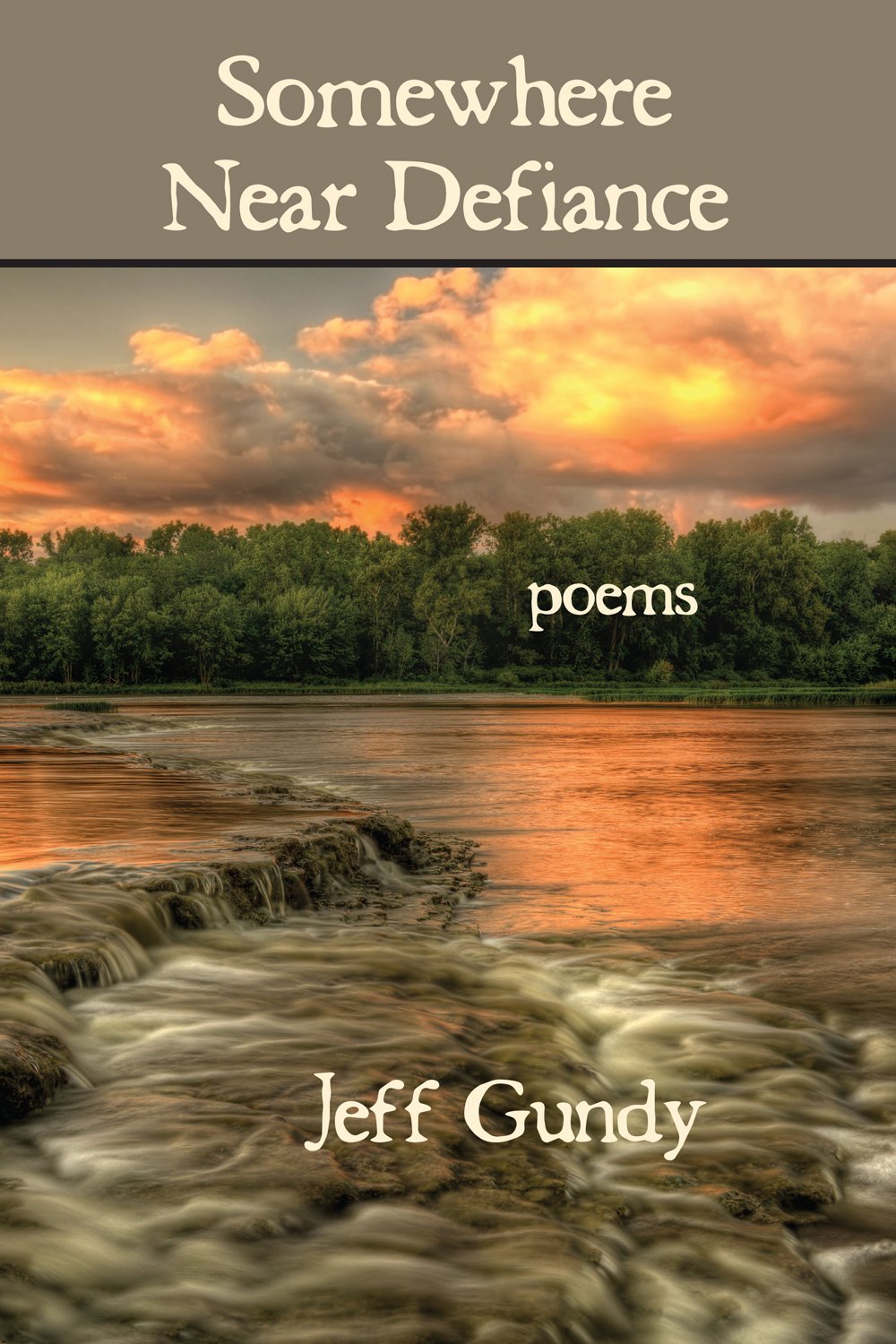
Somewhere Near Defiance by Jeff Gundy
Just as a river finds inevitable kinship between remote hills and a distant sea, this book employs the prehensile reach of poetry to link local wisdom and distant war, to bind sacred callings and daily life. Defiance against what's wrong is devotion to what's right, and for Jeff Gundy the path between is a poetry bristling with connections. -- Kim Stafford, author of 100 Tricks Every Boy Can Do: How My Brother Disappeared
Interior Housekeeping
The burning city of my sorrow…
--William Stafford
My sorrow is not a city, and not burning. It is Railroad Street
in my town, so small it has only six houses, all facing
the tracks, three of them neat and clean, two in need
of paint and shingles, one so poor that nobody remembers
how to open the door, how long ago the gas was turned off,
what dwells and swells inside the dark refrigerator.
Maybe there’s an old man in the bedroom upstairs,
drinking from the rusty sink tap, eating stale corn chips
and Oreos. His wife left a note, but it fell behind the stove.
He took what he could find upstairs a week ago, knowing
this was his last trip. He pared mold off the last wedge
of cheese with a table knife, then tried it on his arm.
Twice he heard the phone ring, the second time for an hour.
He remembered to put the cat outside. He ripped the bag
of food right down, filled the water dish. He locked the doors.
The sheets have flowers on them. The blanket is wool.
A family of squirrels is living in the wall near the chimney.
They scratch and chitter all night. He scratches back.
Meditation on Copepods and Obscure Information
Some days I look around wildly,
convinced I'm missing something crucial.
Some days I pick up the guitar and try
to play toward something that won't fit
into words but might change the silence
where words grow, that place like
the liquid spaces within the living rock
in the salt-water tank where tiny
obscure creatures wait to be born.
You must look very closely to see
the copepods, smaller than rice grains,
translucent as rice fried in oil.
But once you know, you can watch them
crawl over the rock and each other,
feast on the purple and green algae,
delirious with delight, knowing
nothing of words or chords
or trains, the humming pumps
that make their weather,
the glass walls that keep them alive.
Contemplation with Distant Scenes and Loon
All day I've been an old parchment written on
too many times: rain forest outside Ketchikan
glowing like green stars; slopes of the Gaisberg
and the Watzmann looming like a family of ice giants
as we climbed; the hemmed-in ribbon of woods
two blocks from home on Riley Creek. And now
in the shadows of Horseshoe Lake, the silent trees
lie out on the water like dancers. Lily pads
and watergrass rest and waver on the surface.
They register everything, remember nothing,
make what they need from what they are given.
I'll sleep poorly in my borrowed tent,
dream of some western mountain I've seen
only from an airplane. The old trees
and older stones will offer themselves to anyone
willing to pull an oar over and over against
the slate-gray water. Above me the murmur of others,
the clink of pots. Soon I will climb the bank
and we'll sit and eat together. A loon swims
right up as though in appraisal or approval,
sharp head reflected like a ghost soul in the lake.

